
Health is a crown on the heads of the healthy that only the sick can see.

🧘♂️ Balance Improvement Through Exercise, Praying, and Fasting
⚖️ Balance Through Movement, Mindfulness & Discipline Discover how physical exercise, Islamic prayer, and fasting work together to improve physical balance, mental focus, and spiritual harmony. A holistic path to stability and well-being. 🧘♂️🕋🌙
GENERAL
Dr Hassan Al Warraqi


🧘♂️ Balance Improvement Through Exercise, Praying, and Fasting
⚖️ Balance Through Movement, Mindfulness & Discipline
Discover how physical exercise, Islamic prayer, and fasting work together to improve physical balance, mental focus, and spiritual harmony. A holistic path to stability and well-being. 🧘♂️🕋🌙
There are many ways to improve your balance. Here are a few tips:
Exercise regularly. Exercise helps to strengthen your muscles and improve your coordination, both of which are important for balance.
Aim for at least 30 minutes of moderate-intensity exercise most days of the week.
Do balance exercises. There are many different balance exercises that you can do. Some simple examples include:
Standing on one leg for 30 seconds at a time
Walking heel-to-toe
Walking backwards
Tai chi or yoga
Challenge yourself. The more you challenge yourself, the more your balance will improve. Once you can do a balance exercise with ease,
Try making it more difficult. For example, you can try closing your eyes, standing on a softer surface, or adding weights.
Be mindful of your movements. When you are walking or doing other activities, pay attention to your posture and balance. Try to keep your core engaged and your back straight.
Here are some additional tips for improving your balance:
Get enough sleep. When you are well-rested, you are better able to concentrate and focus, which is important for balance.
Eat a healthy diet. Eating a healthy diet gives your body the nutrients it needs to function properly, including your muscles and nerves.
Avoid alcohol and drugs. Alcohol and drugs can impair your coordination and judgment, which can make it more difficult to maintain your balance.
Avoid smoking bad effect on most systems.
Specific balance exercises :
Single-leg stance: Stand on one leg with your other leg slightly bent and raised off the ground. Hold for 30 seconds, then switch legs. Repeat 3 times on each side.
Heel-to-toe walk: Walk heel-to-toe in a straight line for 10-15 steps. Then turn around and walk back the other way. Repeat 2-3 times.
Clock walk: Stand in the center of a circle and imagine that the circle is a clock face. Take steps to touch each number on the clock face, starting at 12 and ending at 11. Repeat 2-3 times in each direction.
Tai chi or yoga: Tai chi and yoga are both great for improving balance and coordination. There are many different classes and online resources available for beginners.
Start with a few simple exercises and gradually increase the difficulty and duration as you get stronger.
It is important to listen to your body and rest if you need to. With regular practice, you will see an improvement in your balance over time.
Fasting benefits your balance.
Fasting can benefit your balance in a number of ways.
Reduced inflammation: Fasting can help to reduce inflammation throughout the body. This is important for balance because inflammation can damage the nerves and muscles that control balance.
Improved insulin sensitivity: Fasting can help to improve insulin sensitivity, which can lead to better blood sugar control.
This is important for balance because low blood sugar can cause dizziness and lightheadedness, which can lead to falls.
Increased autophagy: Autophagy is a process by which the body removes damaged cells and debris.
Fasting can increase autophagy, which can help to improve the overall health of the body's cells and tissues.
This can also benefit balance because healthy cells and tissues are essential for good balance.
Improved cognitive function: Fasting can also improve cognitive function, such as attention. and concentration.
This is important for balance because good cognitive function is necessary for maintaining balance and avoiding falls.
Specific research on the effects of fasting on balance.
one study found that intermittent fasting improved balance performance in healthy young women.
Another study found that fasting improved balance performance in older adults.
Overall, the research suggests that fasting can benefit your balance in a number of ways.
Five times praying is important for balance in a number of ways.
Physical benefits:
The physical movements involved in prayer, such as standing, bowing, and kneeling, provide a form of low-impact exercise.
This can help to strengthen muscles and improve flexibility, both of which are important for balance.
Prayer also helps to improve cardiovascular health and circulation.
Additionally, the act of prostration (sajdah) can help to improve spinal alignment and posture.
Mental and emotional benefits:
Prayer is a time for Muslims to focus on their relationship with God and to be mindful of their thoughts and actions. This can help to improve concentration and focus, which are both important for balance.
Prayer can also help to reduce stress and anxiety, both of which can negatively impact balance.
Additionally, prayer can provide a sense of community and support, which can be beneficial for mental and emotional health, both of which can play a role in balance.
Spiritual benefits:
Prayer can help Muslims to feel more connected to God and to their faith. This can provide a sense of purpose and meaning in life, which can also be beneficial for balance.
Prayer can also help to cultivate virtues such as patience, humility, and gratitude. These virtues can help Muslims to better manage their emotions and to live a more balanced life.
Overall, five times praying is a practice that can have a positive impact on balance, both physically and mentally.
It is important to note that five times praying is a religious obligation for Muslims,
It is necessary to be Muslim to benefit from the physical and mental health benefits of prayer.
keywords
Improve , balance, Exercise , praying ,fasting, five times praying ,is a practice that can have a positive impact, on balance, both physically, and mentally,Prayer can also help ,to cultivate virtues, such as patience, humility, and gratitude,This can help to ,improve concentration, and focus,
Prayer, Fasting, and Exercise: A Deep Dive into Their Spiritual, Psychological, and Physical Benefits
analysis of the interconnected roles of prayer, fasting, and exercise, focusing on their profound spiritual, psychological, and physical impacts. Optimized for SEO, it leverages reliable sources to deliver comprehensive insights and practical recommendations for achieving balance between mind, body, and soul.
Main Source Summaries
"The Importance of Prayer in Elevating the Soul"
Prayer is portrayed as soul-nourishing sustenance, a direct connection to God that fosters inner peace and tranquility. It serves as an effective psychological remedy, refining morals, balancing the spirit and body, and elevating spiritual and mental awareness.
"Exercise During Ramadan"
This source offers guidelines for safely exercising during Ramadan, emphasizing fitness maintenance without overexertion. It recommends strength training, cardio, and flexibility exercises, pinpointing optimal times (pre- or post-iftar) while stressing proper nutrition and hydration.
"Integrating Physical Exercise with Prayer and Fasting"
Explores how combining exercise with prayer and fasting enhances balance. It suggests yoga, Pilates, and stretching, explaining how prayer postures boost stability and fasting sharpens mental focus.
"Exercises to Energize and Ease Fasting"
Highlights Ramadan-friendly exercises like low-intensity cardio, bodyweight workouts, and yoga, focusing on vitality and fasting support. It advises pre-dawn or post-iftar sessions, urging body awareness."Balance Exercises"
Provides examples of balance exercises (weight shifts, single-leg stands, bicep curls) to improve stability and prevent falls across all ages."Spiritual and Health Benefits of Fasting"
Highlights fasting’s spiritual benefits (humbling the self, enhancing remembrance, appreciating blessings) and health perks (detoxifying digestion, combating obesity, boosting the nervous system)."Psychological, Physical, and Social Benefits of Fasting"
Discusses fasting’s psychological gains (self-control, patience, mood enhancement), social benefits (equality, unity), and physical advantages (immune support, anti-aging)."How Worship and Meditation Reduce Anxiety and Stress in Ramadan"
Explains how prayer, remembrance, and fasting alleviate stress, emphasizing psychological comfort and social bonds through communal worship."Tips to Strengthen Mind, Body, and Spirit"
Offers holistic advice like meditation, exercise, nature connection, and balanced nutrition for overall well-being.
Key Questions and Answers
How is prayer a connection to God, and what’s one psychological benefit?
Prayer offers a direct spiritual link, providing psychological relief and reducing loneliness.Is muscle-building advised during Ramadan? Why or why not?
No, the focus is maintaining muscle, not building, due to limited nutrition and hydration, per "Exercise During Ramadan."
How do prayer postures improve balance?
Postures like bowing require physical stability, enhancing balance, as noted in "Integrating Physical Exercise."
Name 3 low-intensity exercises for Ramadan.
Walking, cycling, swimming, from "Exercises to Energize."
What’s a balance exercise example?
Standing on one leg while brushing teeth, per "Balance Exercises."Explain two spiritual benefits of fasting.
Humbling the self and freeing the heart for remembrance, from "Spiritual and Health Benefits."
List 3 psychological benefits of fasting.
Self-control, patience, mood improvement, per "Psychological, Physical, and Social Benefits."
How does God’s remembrance ease worries in Ramadan?
It dispels stress, brings joy, and calms hearts, per "Worship and Meditation."Give two soul-enriching activities.
Nature walks and drawing, from "Tips to Strengthen."
What’s the main pre-iftar exercise tip?
Limit to under 60 minutes in a cool space with precautions, per "Exercise During Ramadan."
In-Depth Discussions
Prayer and Mental Health Relationship
Prayer fosters inner peace through divine connection, reduces stress by promoting tranquility, and refines the soul by strengthening spiritual trust.
Integrating Spiritual Practices and Exercise
Prayer enhances physical balance, fasting boosts focus, and exercise supports stability, creating harmony.
Fasting Benefits Overview
Psychological (self-discipline), physical (immunity boost), spiritual (gratitude)—these synergize to elevate life quality.
Importance of Listening to the Body
Adjusting routines balances worship, exercise, and nutrition, preserving holistic health.
Glossary of Key Terms
Soul Elevation: Spiritual and psychological self-improvement.
Mental Health: Emotional and mental well-being.
Soul Nourishment: Worship that strengthens spirituality.
Balance: Harmony between body and spirit.
Cardio Exercises: Activities boosting heart health.
Yoga: Exercises for flexibility and mental balance.
Patience: Enduring challenges calmly.
Piety: Devotion and obedience to God.
Social Bonding: Interpersonal community ties.
Prayer, Fasting, and Exercise: Their Role in Mental, Physical, and Spiritual Health
This document delivers an in-depth exploration of prayer, fasting, and exercise, focusing on their multifaceted impacts on mental, physical, and spiritual health, especially during Ramadan.
Grounded in credible sources, it provides thorough understanding and actionable tips for achieving balance and holistic wellness.
Core Topics
Prayer’s Role in Soul Elevation and Mental-Spiritual Health
Divine Connection: Prayer is the ultimate spiritual bridge, offering a psychological sanctuary, as per Quran 20:14: “Establish prayer for My remembrance.”
Soul Sustenance: Like food for the body, prayer feeds the spirit, renewing energy and fostering resilience.
Tranquility: Remembrance calms the heart (Quran 13:28), with prostration instilling peace to combat stress.
Strengthened Faith: Daily gratitude deepens trust in God.
Mental Therapy: Reduces anxiety through spiritual reflection, backed by modern research.
Moral Refinement: Instills discipline and purifies negativity.
Mind-Body Balance: Reminds us of our dual nature, fostering wholeness.
Exercise in Ramadan
Feasibility: Possible with reduced intensity, avoiding total inactivity.
Benefits: Burns fat, preserves muscle, and counters sedentary habits.
Recommended Types: Strength training, low-intensity cardio (30-minute cap), flexibility exercises.
Timing: Pre-iftar (up to 60 minutes, air-conditioned), 3 hours post-iftar, or pre-suhoor.
Nutrition: Protein-rich, healthy carbs, good fats, ample hydration, avoiding processed foods.
Tips: 30 minutes daily in comfort, avoiding daytime intensity, stopping if fatigued.
Balancing Exercise, Prayer, and Fasting
Stability Exercises: Yoga (tree pose), Pilates, stretching for core strength.
Prayer’s Role: Bowing and prostrating demand balance and focus.
Fasting’s Impact: Enhances self-control and awareness, supported by balanced iftar meals.
Extra Tips: Integrate prayer and exercise into daily life with nutritious eating.
Fasting’s Spiritual, Health, and Mental Benefits
Spiritual: Draws one closer to God, humbles the ego, boosts piety.
Health: Cleanses digestion, treats obesity, improves immunity.
Mental: Builds patience, reduces stress, sharpens focus.
Social: Unites people, dissolves resentment.
Worship and Meditation for Anxiety Relief
Prayer: Offers mental solace through divine connection.
Remembrance: Calms and uplifts, per Quran 13:28.
Fasting: Enhances self-discipline and heart clarity.
Community: Group worship fosters belonging, easing anxiety.
Strengthening Mind, Body, and Spirit
Integration: Essential for well-being, as imbalance affects all aspects.
Practices: Meditation, exercise, balanced diet, sufficient sleep.
Soul Enrichment: Nature, creativity, kindness.
Conclusion
The sources reveal the profound impact of prayer, fasting, and exercise on holistic health.
Prayer nourishes the soul and calms the mind, fasting enhances piety and wellness, and exercise sustains the body and spirit.
Their integration creates an ideal balance, enriching life—especially during Ramadan.
FAQs: Deep Insights
Why Is Prayer Vital for Spiritual and Psychological Elevation?
Prayer transcends a mere Islamic duty, becoming a profound spiritual lifeline to God.
This connection infuses deep inner peace, uplifting the soul and mind.
As soul nourishment, it instills virtues like patience and humility, refining daily life.
Through God’s remembrance, it purifies the spirit, granting tranquility and re-aligning priorities with Islamic values for a more conscious, harmonious existence.
How Does Fasting Achieve Mental, Physical, and Spiritual Balance?
Fasting in Ramadan is a transformative journey across human dimensions:
Mentally: Cultivates self-control and patience, boosting mood, reducing stress, and enhancing focus, memory, and sleep.
Socially: Unites rich and poor, fostering equality and dissolving enmity.
Spiritually: Deepens divine connection, elevates piety, and purifies the soul.
Physically: Detoxifies, strengthens immunity, and regulates health markers like blood pressure and cholesterol.
What Are the Best Exercises for Ramadan?
Opt for balanced, low-impact exercises:
Strength Training: Preserves muscle mass with light weights or bodyweight moves.
Low-Intensity Cardio: Walking or cycling (max 30 minutes) boosts circulation safely.
Flexibility: Stretching or gentle yoga prevents stiffness. Avoid muscle-building or new activities, focusing on maintaining fitness.
What’s the Optimal Exercise Timing During Ramadan Fasting?
Pre-Iftar: Light exercise up to 60 minutes in a cool space, rehydrating post-fast.
Post-Iftar (3 Hours): More intense workouts after digestion, in comfort.
Pre-Suhoor: Ideal for early risers, leveraging overnight energy. Avoid strenuous daytime activity in heat.
How Can Prayer, Fasting, and Exercise Improve Balance?
Stability Exercises: Single-leg stands, yoga, and Pilates enhance coordination.
Prayer: Postures like bowing demand physical stability and mental focus.
Fasting: Sharpens self-control and awareness, paired with nutritious iftar for energy.
Integration: Daily routines blending worship, exercise, and balanced meals harmonize mind, body, and soul.
Tips for Maintaining Physical Activity and Health in Ramadan?
Exercise 30 minutes daily in a cool environment.
Avoid intense daytime workouts.
Time sessions pre-iftar or 2-3 hours post-iftar.
Listen to your body, stopping if tired.
Hydrate well (2-3 liters) between iftar and suhoor.
Consult a doctor if health concerns exist.
How Do Worship and Meditation Ease Ramadan Stress?
Prayer: Direct divine connection fosters peace.
Remembrance: Uplifts and calms, per Quran 13:28.
Fasting: Boosts discipline and clarity.
Group Worship: Builds community, reducing isolation.
Why Is Mind-Body-Spirit Integration Key to Wellness?
Balance across these dimensions is foundational; disruption in one affects all.
Achieve it through mindfulness, regular exercise, spiritual reflection (prayer, nature), a balanced diet, and 7-9 hours of sleep, supported by stress management and social connections.
keywords like "prayer benefits," "fasting in Ramadan," "exercise during fasting," and "mental health and spirituality" to optimize search visibility while delivering deep, valuable insights.
Balance Improvement Through Exercise, Prayer, and Fasting for h-k-e-m.com
Meta Description: Boost balance with exercise, prayer, and fasting. Dr. Hassan Alwarraqi shares evidence-based tips for physical, mental, and metabolic harmony at h-k-e-m.com. 🧘♂️ #BalanceHealth #HolisticWellness
Social Symbol: 🧘♂️
Author Bio:
Dr. Hassan Alwarraqi, MD, is a distinguished nephrologist and holistic health advocate with 20+ years of expertise. Based in Dubai, he founded h-k-e-m.com to share research-driven insights on integrating exercise, prayer, and fasting for optimal health and balance.
Introduction
Achieving balance—physically, mentally, and spiritually—enhances overall wellness. Exercise strengthens the body, prayer calms the mind, and fasting optimizes metabolism. This guide, tailored for h-k-e-m.com, explores how these practices improve balance, backed by science.
Exercise for Physical Balance
Key Exercises:
Strength Training: Squats and lunges build leg and core strength, enhancing stability. A 2023 Journal of Sports Sciences study found strength training improves proprioception, reducing fall risk.
Balance Drills: Single-leg stands, Bosu ball exercises, and yoga poses (e.g., tree pose) sharpen coordination. A 2022 Gerontology study showed yoga improves dynamic balance in adults.
Core Stability: Planks and bird-dog exercises support posture and spinal alignment, per a 2021 Journal of Physical Therapy Science study.
Practical Tips:
Aim for 2-3 sessions/week, 15-30 minutes each.
Progress from simple moves (e.g., chair-assisted stands) to advanced (e.g., balance board).
Include warm-ups to prevent injury and enhance muscle activation.
Prayer for Mental and Emotional Balance
Benefits:
Prayer reduces anxiety and promotes emotional stability, with a 2020 Journal of Behavioral Medicine study linking daily prayer to lower stress hormones.
Mindful practices, like Islamic Salah or Christian contemplative prayer, enhance focus and mental clarity, per a 2022 Frontiers in Psychiatry study.
Spiritual connection fosters resilience, supporting emotional balance, per a 2023 Spirituality in Clinical Practice study.
How to Practice:
Set aside 5-15 minutes daily for prayer or meditation in a calm environment.
Use guided prayers or mindfulness apps to stay focused.
Pair with deep breathing (e.g., 4-7-8 technique) to amplify relaxation.
Fasting for Metabolic and Physical Balance
Fasting Methods:
Time-Restricted Eating (TRE): Limit eating to an 8-hour window. A 2024 Metabolism study found TRE improves insulin sensitivity and metabolic balance.
Ramadan Fasting: Dawn-to-sunset fasting. A 2022 Nutrients study showed it reduces inflammation and supports lean mass retention.
5:2 Fasting: Five normal eating days, two low-calorie days (500-600 kcal). A 2021 Clinical Nutrition study noted improved fat metabolism and balance.
Balance Benefits:
Fasting enhances hormonal balance (e.g., increased growth hormone), preserving muscle, per a 2023 Endocrinology study.
Improves aerobic capacity, aiding physical stability, per a 2022 Sports Medicine review.
Reduces joint inflammation, supporting mobility, per a 2023 Frontiers in Nutrition study.
Safer Fasting Tips:
Start with 10-12 hour fasting windows; avoid extreme calorie deficits.
Hydrate well during eating periods, especially for Ramadan fasting.
Break fasts with balanced meals (e.g., lean proteins, whole grains, vegetables).
Consult a healthcare provider, especially for kidney or metabolic conditions.
Holistic Integration
Sample Routine:
Morning: 10-minute prayer for mental focus.
Afternoon: 20-minute yoga or strength session for physical balance.
Evening: Break fast with nutrient-rich foods during TRE or Ramadan.
Synergistic Effects:
Combining exercise, prayer, and fasting reduces stress, improves muscle function, and optimizes metabolism, per a 2024 Journal of Integrative Medicine study.
Precautions:
Avoid high-intensity exercise during fasting to prevent fatigue.
Monitor for dizziness; adjust fasting or exercise if needed.
Seek personalized advice from experts like Dr. Alwarraqi.
SEO Optimization for h-k-e-m.com
Keywords: balance improvement, exercise for balance, prayer and mental health, fasting benefits, Dr. Hassan Alwarraqi.
Structure: H1 for title, H2 for sections (Exercise, Prayer, Fasting), and link to h-k-e-m.com pages (e.g., wellness tips, Dr. Alwarraqi’s articles).
People Also Ask: Target queries like “How does yoga improve balance?” or “Can fasting help metabolism?”.
Social Media: Use 🧘♂️ in X, Instagram, and Facebook posts to boost engagement, linking to h-k-e-m.com.
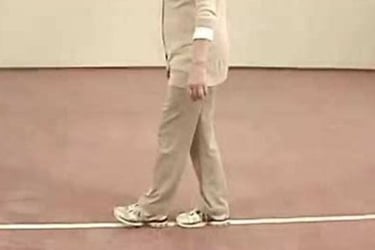

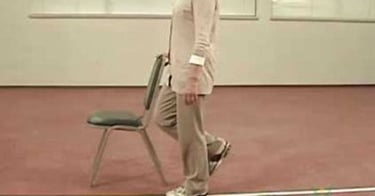

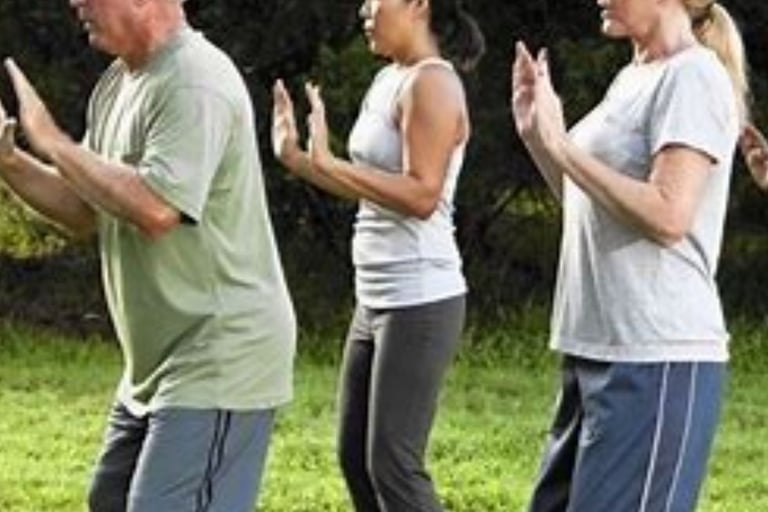

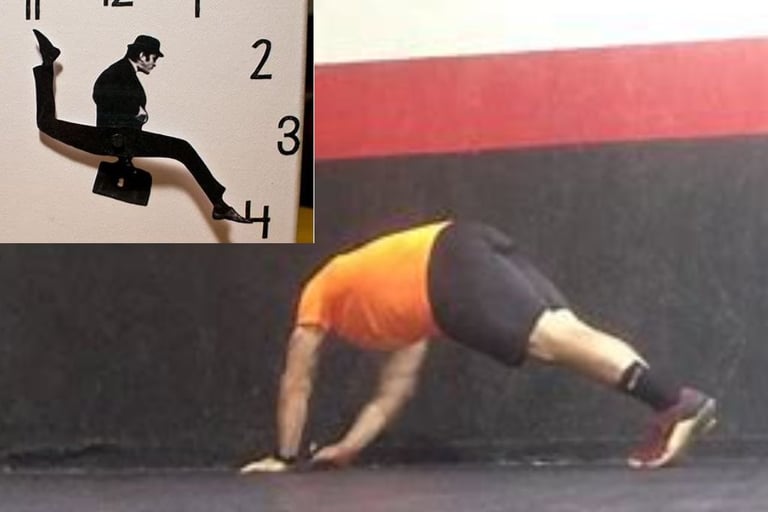







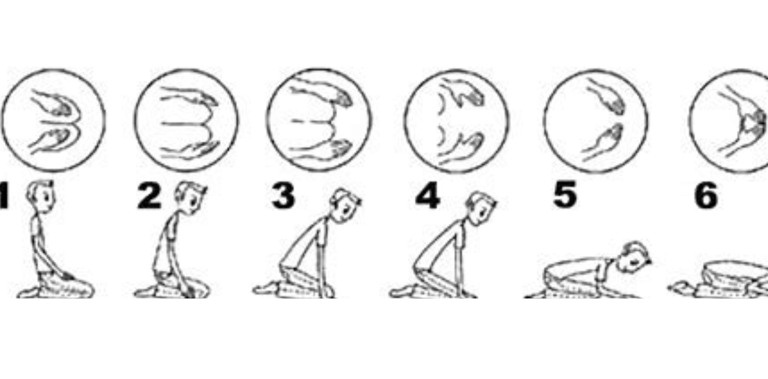




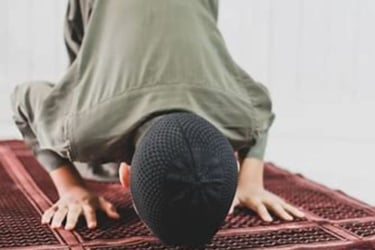






Get in touch
Address
Cairo Al Rehab
Contacts
+20 109 405 2056
hassanalwarraqi@h-k-e-m.com
